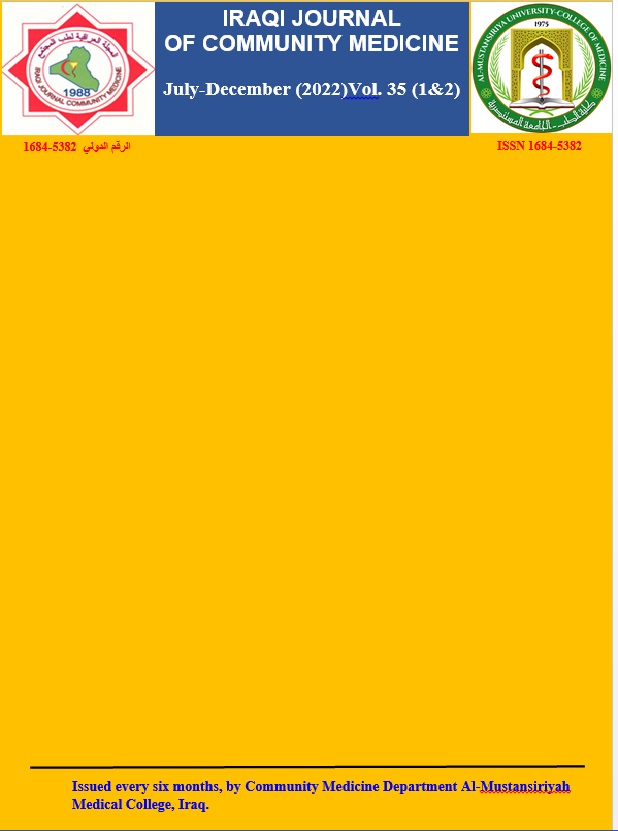Abstract
Background: Infantile colic is a difficult experience met by the parents in the first few months of an infant’s life. Infantile colic
is traditionally defined by the Wessel’s criteria “rule of 3s” in an infant who is well-fed and otherwise heathy. The
cornerstones in the management of infantile colic are parental reassurance and education.
Objectives: To assess the maternal knowledge regarding infantile colic causes and management strategies and to identify the
association of some sociodemographic factors with their knowledge.
Subjects and method: A cross-sectional study was done among mothers in Central Pediatric Teaching Hospital during their visit
to consultation, emergency room, and any ward of the hospital with infant's age ranged between 1-5 months with
infantile colic, corresponding to modified Wessel criteria. One hundred seventy-two participants were interviewed
face to face using a questionnaire of 45 questions.
Results: From total of 172 mothers, the majority of infants’ ages were two months and most of them were males and they were
on mixed feeding. The majority of mothers’ ages between 20-24 years old and they were housewives with 61.0% of
them were secondhand smoke. The majority (76.2%) of the mothers depend on family and friends as a sources of
knowledge. They were thinking that colic attacks would increase because of the food the mothers ate, due to the
mothers not keeping themselves warm, and formula feeding. The behavioral soothing techniques most widely used
were keep baby in a sitting position when feeding; massage the baby, lay them a cross your lap and gently rub their
back, placing baby in a dim, quiet room, and changing mother’s diet and drinking if the mother breast feeding.
Almost all mothers (90.7%) said that the drops had a benefit in the treatment of colic and change in formula effective
in reducing the symptoms of infantile colic.
Conclusion: The parents should be informed that infantile colic is a self-limiting condition, will not harm their babies. They also
should be use the pharmacological treatment under the supervision of doctor assurance.
is traditionally defined by the Wessel’s criteria “rule of 3s” in an infant who is well-fed and otherwise heathy. The
cornerstones in the management of infantile colic are parental reassurance and education.
Objectives: To assess the maternal knowledge regarding infantile colic causes and management strategies and to identify the
association of some sociodemographic factors with their knowledge.
Subjects and method: A cross-sectional study was done among mothers in Central Pediatric Teaching Hospital during their visit
to consultation, emergency room, and any ward of the hospital with infant's age ranged between 1-5 months with
infantile colic, corresponding to modified Wessel criteria. One hundred seventy-two participants were interviewed
face to face using a questionnaire of 45 questions.
Results: From total of 172 mothers, the majority of infants’ ages were two months and most of them were males and they were
on mixed feeding. The majority of mothers’ ages between 20-24 years old and they were housewives with 61.0% of
them were secondhand smoke. The majority (76.2%) of the mothers depend on family and friends as a sources of
knowledge. They were thinking that colic attacks would increase because of the food the mothers ate, due to the
mothers not keeping themselves warm, and formula feeding. The behavioral soothing techniques most widely used
were keep baby in a sitting position when feeding; massage the baby, lay them a cross your lap and gently rub their
back, placing baby in a dim, quiet room, and changing mother’s diet and drinking if the mother breast feeding.
Almost all mothers (90.7%) said that the drops had a benefit in the treatment of colic and change in formula effective
in reducing the symptoms of infantile colic.
Conclusion: The parents should be informed that infantile colic is a self-limiting condition, will not harm their babies. They also
should be use the pharmacological treatment under the supervision of doctor assurance.
